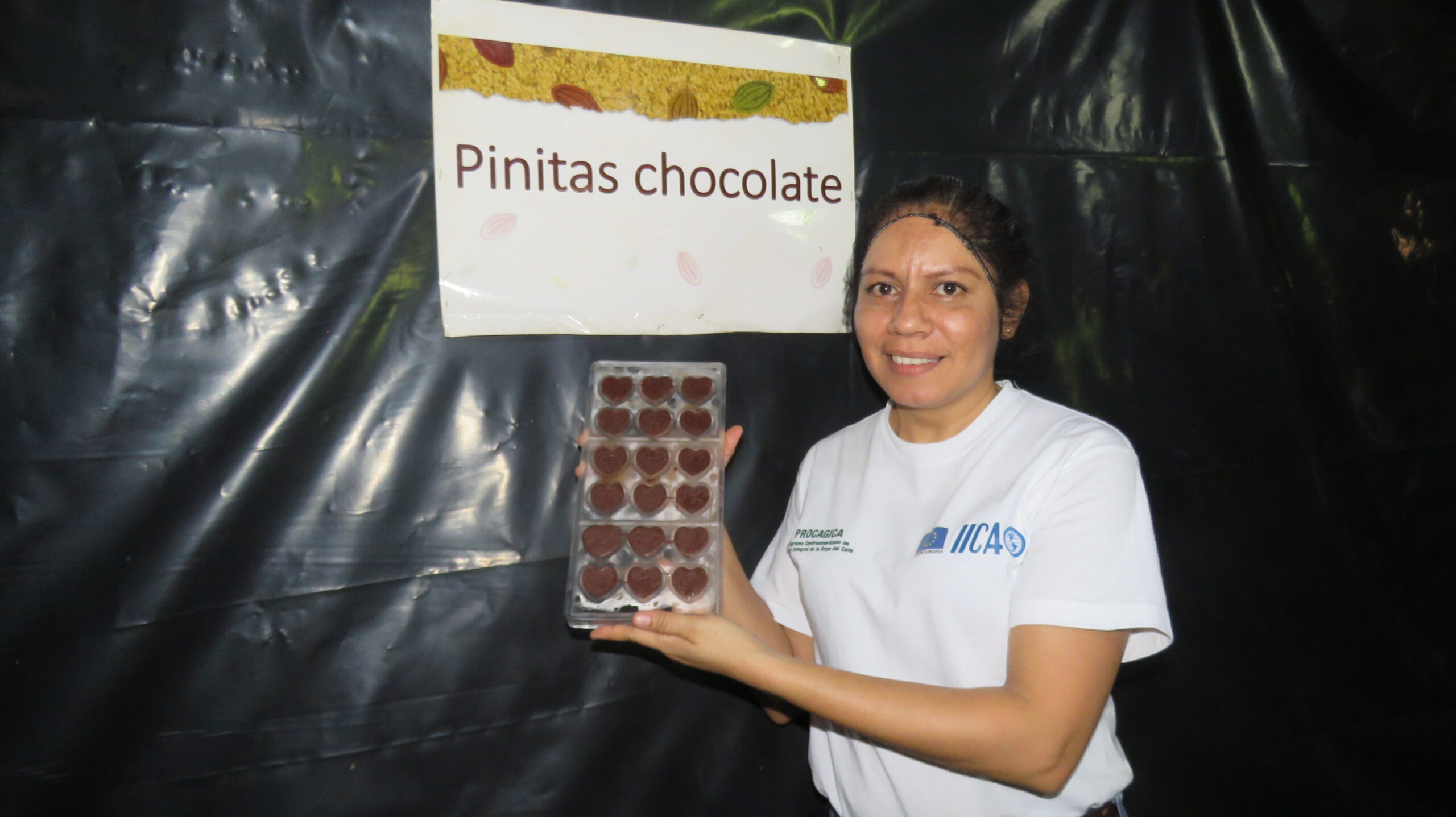Training has included new types of production that are more efficient, profitable and sustainable in traditional coffee-growing areas.

San Salvador, 10 August 2020, (IICA) – The Central American Integrated Coffee Rust Management Program (PROCAGICA) continues to strengthen the capacities of farmers who have diversified systems of coffee along with other crops, including cocoa production.
The initiative has provided technical support and training in processing to cocoa farmers, many of whom had the crop planted on their farms but, due to a lack of knowledge of manufacturing techniques, were not adding value, which limited them to very basic marketing, explained Norma Arias, technical specialist at PROCAGICA.
The training has included new forms of more efficient, profitable and sustainable production, she stated.
PROCAGICA has focused on the preparation of cocoa derivatives in combination with coffee, as a marketing alternative. This initiative has been implemented by the Jucuapense cooperative in the Department of Usulután, where several farmers already have farms with criollo cocoa beans
After training, the program provided tools and equipment to the cooperative to carry out the processes of making chocolate bars and chocolate horchata. With the knowledge acquired, a group of 12 women are now fully involved in producing chocolate products laced with coffee.
According to Claudia Ruíz, “implementing new alternatives into the processing phase has been very attractive for expanding the range of products that we market, as we are producing chocolate bars, chocolate horchata and sweets, which are distributed in the area”.
“Despite the crisis caused by Covid-19, we have continued to work on processing cocoa derivatives, and this has provided an extra income. PROCAGICA has organized training days on post-harvest processing to add value to the cocoa bean, on the importance of the raw materials for preparing the products and on promoting good processing practices and equipment maintainance”.
“In a short space of time, we have reaped the rewards from cocoa and we have transferred knowledge to the youth in the community so they can help us with the production. It is a difficult time and we cannot wait for the clients to come to us for the product, we have to get out and showcase everything that we are doing”, stated Gilma Guzmán, another farmer who benefitted.
The Central American Integrated Coffee Rust Management Program (PROCAGICA) is managed by the Inter-American Institute for Cooperation on Agriculture (IICA), along with the European Union, and seeks to improve the living conditions of the rural population in the coffee-growing areas of Central America and the Dominican Republic.
More information:
Institutional Communication Division at IICA











